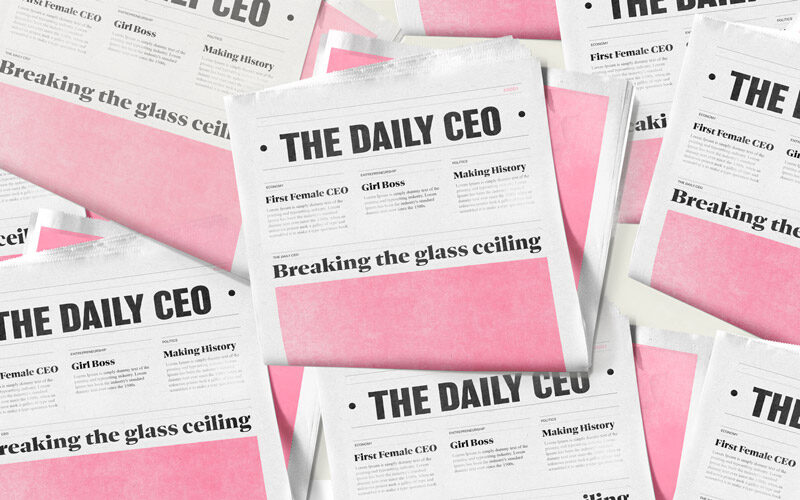“I have the best advice for women in business. Get your fucking ass up and work. It seems like nobody wants to work these days. You have to. You have to surround yourself with people that want to work.” – Kim Kardashian, socialite (whatever that means)
It’s safe to say we’re all sick of confirmation bias.
In just two years, the world went from “hustling to “quiet quitting“. Workforces worldwide realised hard work and determination don’t – in fact – get you everywhere. People are no longer accepting a bigger paycheck in exchange for a worse life.
47 million Americans left their jobs in 2021. 1 in 5 Aussies have quit in the past year. 39% cited working too many hours as a major reason for quitting. 27% cited rubbish pay.
The New York Times has called it the age of anti-ambition. As usual, “young people” are taking the heat.
But are things really that simple?
No more pool tables
Before COVID, Aussies were firmly in the “shut up and get on with it” mindset. Only 51% of Australians loved or liked their jobs, with the remainder saying “It’s OK” or actively disliking them.
In July, quiet quitting went viral on TikTok. It proclaims you’re not “outright quitting your job, but you’re quitting the idea of going above and beyond.”
In practice, what does this look like? Leaving work on time, not answering emails past working hours, and definitely no unpaid overtime. Bosses might call this the bare minimum. But that sounds so negative. What it actually manifests as is simply doing the job you’re getting paid to do.
The days of gruesome pro-work catchphrases like “grind now, shine later” are well and truly gone.
Gen Z employees care more about work-life balance and personal well-being, not status and income. They know their worth, their rights, and their limits. Growing up with social networking and coming of age into the gig economy, they are highly resourceful.
They want flexible or full-remote working, equitable and respectful working relationships, and paid time off. They are utterly unfazed by pool tables and unsold by beer pong Fridays.
This has led to an unfair (or perhaps deliberately slanderous) revision of the ol’ classic: “young people are lazy”.
But try confronting a Gen Z with the accusation “you just don’t want to work”. Their answer will be a simple “no, I don’t”. Or “why would I?”.
In just three years, this generation will account for 27% of the workforce.
But what might terrify Boomer bosses or a certain breed of middle management actually comes with very few downsides.
The Washington Centre for Equitable Growth says: “There are very real ways that addressing work-life conflict at the firm level improves productivity. Policies that make it possible for workers to focus on their jobs… all improve productivity.”
The era of treating employees like disposable assets is coming to an end. During the 2008 economic downturn, researchers proved companies who relied less on layoffs and more on operational improvements emerged stronger.
The question is: can those middle managers put their fears of the new and unknown aside, and adjust to the times?
Anger at management
It seems the age of anti-ambition only applies to the employed. For the self-employed, it’s a different story. While millions of employees left their jobs to embrace early retirement or pursue their passions, many decided to stay in the game, but this time, as their own boss.
Tired of being under the thumb, almost 365,000 people registered new businesses in Australia in 2021, creating microbusinesses that offset unemployment. And this is not selfish individualism. It benefits economies as a whole.
Solopreneurs or microbusinesses can be launched with small amounts of capital, offset unemployment, and enfranchise those from diverse backgrounds.
In America, numbers of black entrepreneurs increased after the pandemic from 15% to 26%. Entrepreneurs without college degrees increased from 36% to 44%.
In Australia, an influx of new startups bloomed during the Great Resignation.
Over USD $10 billion went to startup funding in 2021, three times the 2020 numbers. Fintech and enterprise software secured 35% of the funding.
A suitable response for startups, SMEs, and sector-leading incumbents alike is to provide an employee-first experience.
Generational difference
23 year olds today did not have previous generations’ experience with a careers counsellor. They weren’t given questionable personality tests in school and told they’d make a great nurse or secretary.
Gen Z has a whole world of possibility in front of them, and they know that considering all their options isn’t selfish or lazy – it’s smart. But of course, there are lazy people in every generation.
There are genuine anti-work movements, “I’ll just be an influencer” delusions, and TikTok trends advocating for womens’ return to housewifery (eek). But a teenager worshipping false lifestyle idols or espousing dodgy politics is nothing new.
It’s among those entering the workforce that the implications are truly noted. There’s genuine anger at the expectation to sell your waking hours for stagnant wages. Penn State Prof of Sociology & Labour Sarah Damaske points out that “millennials and some members of Gen Z… have witnessed two recessions, back-to-back” and that there’s been “an erosion in the employer-employee contract over the last 40 years”.
It’s not that no young people want to work. It’s that they see no real way to commit and invest when jobs and pensions are so unstable, and houses and financial security are so out of reach.
They don’t base their identities on what they do. They know how to negotiate wages and interview the interviewer back.
Society always shapes mental attitudes. Not the other way around. If bosses can’t find or keep good staff, they must look at the environment, not the candidates. Perhaps Gen Z isn’t anti-ambition; it’s the most ambitious generation of all. It’s just that their ambitions look different to those of their parents.











